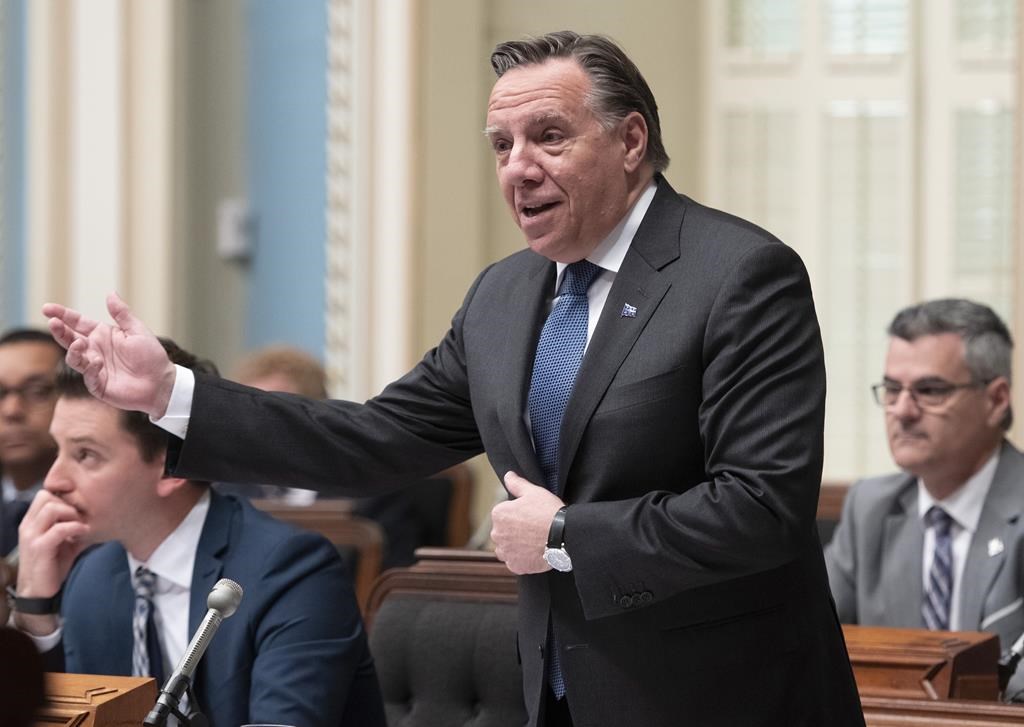Quebec Premier François Legault has presented his demands to the federal parties. This is not unusual — Quebec premiers often do that. However, the list here can only be interpreted as a well-wrapped gift to the Bloc Québécois in this federal election.

The list includes:
- A values test and minimum knowledge of French test for immigrants seeking to become permanent residents in Quebec
- The option for Quebec to cap the number of immigrants in certain categories, such as family reunification
- A promise from the federal parties not to intervene in the debate surrounding the (in)famous Bill 21, which prohibits teachers and several other categories of civil servants from wearing religious symbols while at work
- A single tax form managed by the government of Quebec (which will mean the loss of federal jobs in places like Shawinigan, one of the Canada Revenue Agency sites)
This is a bounty for the Bloc Québécois but a poisoned pill for every other party. With the projected loss of NDP seats in Quebec, about 20 ridings are now hotly contested by Liberals, Conservatives and the Bloc. This could make a difference between a majority or minority government.
READ MORE: Conservatives, Liberals locked in dead heat, Ipsos poll says
Right away, the leader of the Bloc claimed that Legault’s demands were reasonable and fair. Other leaders had to be more nuanced. Conservative Leader Andrew Scheer may be prepared to work with Quebec on the immigration file but cannot support the values test.
Liberals oppose the values test because it allows the government to determine which ”values” are appropriate, and the party has concerns about caps on family reunification numbers. Both demands must be viewed through the anti-immigration platform that Legault has been promoting.
Only the Bloc Québécois can be receptive to his demands. The Bloc Québécois is a political party founded in 1991 to offer a voice for separatists. The Bloc only operates in Quebec. It has had a tumultuous history. Although it held a majority of the Quebec seats from 1993 to 2011, it gave way to the Orange Wave in 2011 when Jack Layton elected a surprising number of NDP candidates in Quebec and left the Bloc with only four seats. Ten Bloc MPs were elected in 2015.
WATCH: Unpacking the politics — Quebec’s ban on wearing religious symbols hits the federal election

The Bloc is a mystery to most people living outside Quebec. Why would anyone vote for a party that has no chance — and absolutely no desire — to govern?
The Bloc is the home of the independentism movement, whose true believers continue to argue that they must be returned to Ottawa to demonstrate the dysfunction of the federal government and its inability to understand Quebec.
With the collapse of the independentism movement during the past Quebec election, is it still relevant? And why is Legault trying to prop it up?
Legault is a repented separatist. Some would say that he wanted power more than Quebec’s independence. He is anti-pipeline and anti-immigrant — a disruptor of current political alliances.
READ MORE: Lengthy debate ahead as CAQ invokes closure on secularism, immigration bills (June 14, 2019)
His gift to the Bloc is more strategic than a nostalgic alliance with his old friends. Legault appears to be calculating that if the Bloc were to win 30 seats in Quebec, it could be a player in negotiations following the election of a minority government. This would allow Legault to insist on advantages for the province — revenues or policy support for some initiatives — that otherwise must be negotiated at federal-provincial tables with nine other provincial premiers present.
In raising the prospects of a “values” test for new immigrants, Legault is also disrupting the campaign of the large, coast-to-coast parties, who need immigrant votes to win. Legault is counting on latent racism to show its ugly head but is discounting Maxime Bernier’s People’s Party of Canada because it does not offer the familiar face that the Bloc offers to Québécois.
In the past, many Quebecers voted almost by default for the Bloc. If no one else was exciting, it seemed the appropriate vote to protect Quebec’s interests. Old habits die hard. Many may return to the familiar Bloc because it offers the reassurance of vaguely protecting Quebec’s interests without doing much else.
READ MORE: Why federal leaders aren’t taking a stronger stance on Quebec’s Bill 21
A resurgence of the Bloc is bad news for Canada and for Quebec as well. The main consequence of the Bloc’s presence in Ottawa is the marginalization of Quebec issues at the federal level and the difficulty for the large parties to engage Quebecers in national issues that transcend provincial boundaries, whether they be international relations, electoral reform or tax changes.
Legault may just be strategizing to maximize his influence on the next federal prime minister.
It is a real loss for Canadian politics.
Nathalie Des Rosiers is principal of Massey College at the University of Toronto. She was Liberal MPP for Ottawa-Vanier in the Ontario legislature from 2016 to 2019.




Comments